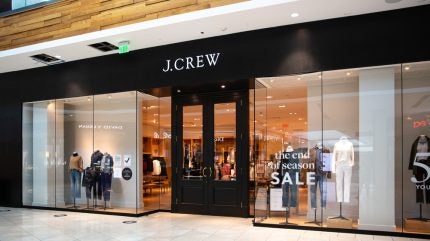
A few years ago, J.Crew Group took a bold step by embracing regenerative agriculture to secure a more sustainable future for cotton and other materials. This agricultural approach prioritises soil health, biodiversity, and water conservation.
However, the company quickly realised that very few farmers were practising this method, leading to supply shortages. Rather than give up, J.Crew expanded its vision, investing directly in American farms to support the transition to regenerative practices.
Katie O’Hare, J.Crew’s Vice President of Sustainability, explained the company’s proactive approach: “We knew that we couldn’t ask for it without doing something proactive.”
To support these farmers, J.Crew has provided financial incentives, focusing on sustainable practices like minimal tilling, crop rotation, and the integration of livestock to enhance soil biodiversity.
As a result, J.Crew now has over 60 products certified as using regenerative cotton, which has been sourced through partners such as 5 Loc Cotton LLC and the regenagri standard.
These efforts align with the company’s goal of strengthening both the environment and the agricultural communities that supply its raw materials.
Expanding regenerative practices across retail
Regenerative agriculture, while essential to sustainability, has proven challenging to scale across retail industries. Macy’s, for example, is another major retailer exploring this practice, largely through the U.S. Cotton Trust Protocol.
Keelin Evans, Macy’s Vice President of Sustainability and Responsible Sourcing, noted, “When we think about our sustainability strategy, we’re trying to do a few things: caring for the people who are making our products while caring for the environment and making it come alive for the customer.”
Macy’s aims to have 40% of its products sourced from preferred materials like responsibly produced cotton by 2025. The company has also initiated sustainability summits to engage its market brand partners in collaborative efforts.
Similarly, J.Crew has been active in sharing knowledge within the industry, hosting regular discussions through the Textile Exchange.
Both companies recognise the importance of learning from others to overcome challenges in sourcing, ensuring that a collective approach strengthens industry-wide efforts.
Building an inclusive, sustainable future
In promoting regenerative agriculture, J.Crew has also emphasised the need for equity within its supply chain.
The company has partnered with the Federation of Southern Cooperatives, an organisation of Black farmers, to provide financial support and help these communities benefit from sustainable farming practices.
By investing directly in these farms, J.Crew aims to foster long-term positive impacts on livelihoods while contributing to environmental goals. O’Hare describes this approach as not merely an investment in products, but an investment in people.
This commitment to equity and environmental sustainability aligns with the National Retail Federation’s vision for a “net positive” impact on social and environmental outcomes.
While J.Crew and Macy’s have laid the groundwork, industry leaders believe there is space for more companies to adopt similar practices.
As Scot Case of the NRF Center for Retail Sustainability notes, “If your sustainability is only focusing on environmental issues, you’re missing at least half the story.”



